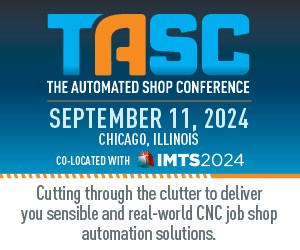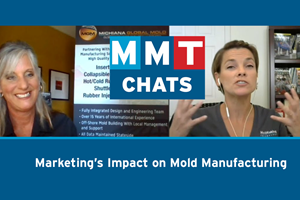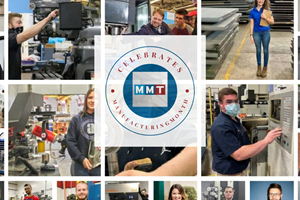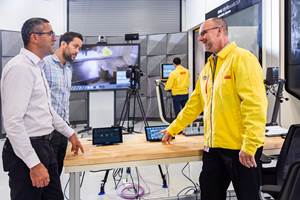Siemens Makes $55.8M Software Grant to Educate and Train
In-Kind Software Grant will Help Michigan Prepare a Highly-Skilled Workforce Necessary to Take Advantage of Manufacturing Resurgence in America
Siemens announced a $55.8 million in-kind software grant to Mott Community College. Students there will now have access to the same Siemens product lifecycle management (PLM) software used in nearly every manufacturing environment in the world – and by more than 80% of automakers – to improve productivity and efficiency in the manufacturing process. The announcement was made during the 2014 Automotive Summit at the Manufacturing in America Symposium sponsored by Siemens and Electro-Matic.
“The manufacturing industry in America is on the rise and it is being transformed by a software revolution that is enhancing productivity, increasing efficiency and speeding time to market,” said Chuck Grindstaff, president and CEO, Siemens PLM Software. “This revolution requires a highly trained workforce. With this grant, Mott Community College will be able to integrate world-class PLM technology into its curriculum, so that its students are even better prepared for co-op assignments and for high quality manufacturing jobs.”
Siemens’ technology partnership with Mott community college goes back more than 15 years. Students currently have access to Siemens’ NX™ software for computer-aided design, manufacturing and engineering analysis (CAD/CAM/CAE) and its Tecnomatix® portfolio for digital manufacturing. With today’s announcement, Siemens’ Teamcenter® software will now be used in Mott Community College’s Technology Division to help expand and modernize its curriculum in design and process technologies. This curriculum is part of Mott’s Certificates and Associate Degrees in Design, Manufacturing and Service Industry specialties as well as Computer and Information Technology courses and degree programs. As software plays an increasing role in the next era of manufacturing, students and faculty will now have access to training on Siemens PLM data management programs utilizing collaboration tools.
“Mott Community College has a long and productive history working with Siemens and is honored to be selected for this software grant,” said Mott Community College President Dr. M. Richard Shaink. “We believe that partnerships like this will allow the college to better understand and update programs that prepare the future workforce for success. We are excited about the new capacity this brings to the region and the opportunity to further expand our work in design, PLM and digital manufacturing. We see this technology as a critical element of the innovation enterprise that will lead to the development of new and better products and ultimately to new and better jobs for the greater southeast Michigan region.”
This is the latest in a series of investments – totaling more than two billion dollars – Siemens has made in recent years in nearly 30 Michigan community colleges and universities.
In addition to the automotive sector, PLM Software is used throughout the global manufacturing industry to design, develop and manufacture some of the world’s most sophisticated products in a variety of sectors including aerospace, consumer products, medical devices, shipbuilding, apparel and machinery. By using this software in their course work and research projects, students will develop the advanced skills sought after by the more than 77,000 global customers who utilize Siemens’ software and technology solutions. This includes companies throughout the Detroit region and state of Michigan who rely on Siemens’ PLM and CAD software including employers such as: Ford, Daimler, General Dynamics, General Motors and BorgWarner.
“Manufacturing is delivering a new era of proficiency, where virtual-to-real will drive innovation and customized mass production, and link the entire product lifecycle, from design, to engineering and finally to the customer,” said Helmuth Ludwig, president and CEO, Siemens Industry, U.S. “Collectively, we must foster a culture of innovation, nurture institutions that enable technology and innovation and strengthen education and training. This partnership can serve as an economic catalyst for the region when it comes to the manufacturing sector.”
From design to manufacturing, the automotive rebirth is being led by a software revolution. Enabled by Siemens automation software running its automation equipment, and by its PLM software that the auto industry uses to design and manufacture vehicles, these software tools allow for faster time-to-market and significant increases in plant productivity.
Siemens has an expansive role in the automotive industry with 80 percent of automotive factories around the world relying on Siemens automation equipment. Among global automakers, 14 of the top 15 OEMs and nearly 90 percent of the top 25 suppliers use Siemens PLM software.
- PLM technology enabled Nissan Motor to cut its development cycle for new vehicles from 20 months to 10.5 months with 80% fewer problems reported after vehicle release.
- For more than 25 years, Siemens and Ford Motor Company have worked together, leveraging innovation and technology to maximize manufacturing efficiency. As a result, Ford has been able to reduce the energy needed to produce a vehicle, increase the safety for people building the vehicle and improve the flexibility of plants and processes.
Related Content
MMT Chats: Marketing’s Impact on Mold Manufacturing
Kelly Kasner, Director of Sales and Marketing for Michiana Global Mold (MGM) talks about the benefits her marketing and advertising, MGM’s China partnership and the next-generation skills gap. This episode is brought to you by ISCAR with New Ideas for Machining Intelligently.
Read More2021 30 Under 30 Honors Program: Mentoring in the Next-Generation of Moldmaking Professionals
Young professionals are vital to the moldmaking industry, and it is important to acknowledge those making strides in shaping the industry's future. MoldMaking Technology recognizes the industry's young talent through its 30 Under 30 Honors Program.
Read MoreHow to Improve Your Current Efficiency Rate
An alternative approach to taking on more EDM-intensive work when technology and personnel investment is not an option.
Read MoreHow to Use Continuing Education to Remain Competitive in Moldmaking
Continued training helps moldmakers make tooling decisions and properly use the latest cutting tool to efficiently machine high-quality molds.
Read MoreRead Next
Reasons to Use Fiber Lasers for Mold Cleaning
Fiber lasers offer a simplicity, speed, control and portability, minimizing mold cleaning risks.
Read MoreAre You a Moldmaker Considering 3D Printing? Consider the 3D Printing Workshop at NPE2024
Presentations will cover 3D printing for mold tooling, material innovation, product development, bridge production and full-scale, high-volume additive manufacturing.
Read MoreHow to Use Strategic Planning Tools, Data to Manage the Human Side of Business
Q&A with Marion Wells, MMT EAB member and founder of Human Asset Management.
Read More

















.png;maxWidth=300;quality=90)







